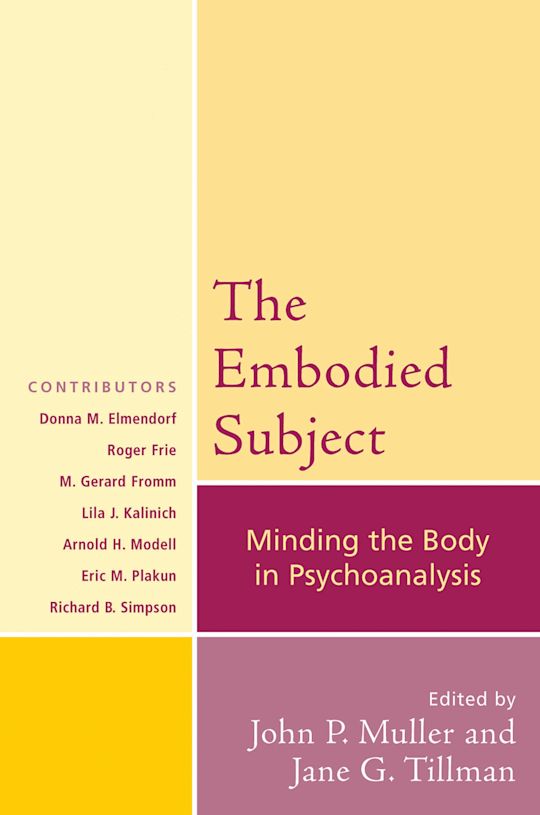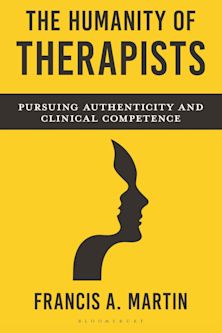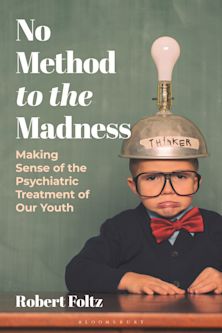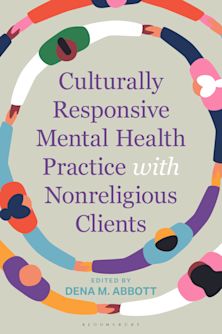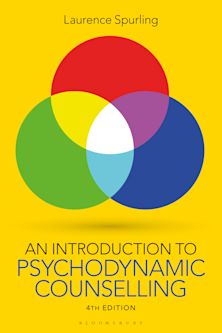- Home
- ACADEMIC
- Psychology
- Psychotherapy & Counselling
- The Embodied Subject
The Embodied Subject
Minding the Body in Psychoanalysis
John P. Muller (Anthology Editor) , Jane G. Tillman (Anthology Editor) , John P. Muller (Contributor) , Arnold H. Modell (Contributor) , Richard B. Simpson (Contributor) , Lila J. Kalinich (Contributor) , Roger Frie (Contributor) , Jane G. Tillman (Contributor) , Donna M. Elmendorf (Contributor) , M Gerard Fromm (Contributor) , Eric M. Plakun (Contributor)
The Embodied Subject
Minding the Body in Psychoanalysis
John P. Muller (Anthology Editor) , Jane G. Tillman (Anthology Editor) , John P. Muller (Contributor) , Arnold H. Modell (Contributor) , Richard B. Simpson (Contributor) , Lila J. Kalinich (Contributor) , Roger Frie (Contributor) , Jane G. Tillman (Contributor) , Donna M. Elmendorf (Contributor) , M Gerard Fromm (Contributor) , Eric M. Plakun (Contributor)
You must sign in to add this item to your wishlist. Please sign in or create an account
Description
This volume addresses the topic of embodiment in psychoanalysis from both theoretical and clinical points of view. Freud's development of a psychoanalytic theory and treatment originated from his consideration of neurology, aphasia, and the great range of embodied signs constituting the hysterical neuroses. Symptoms and signs, Freud noted in 1895, "join in the conversation" by taking bodily form. The body and the mind form a nexus, which is the proper area of study for psychoanalysis.
Because this is a vast field of inquiry, a pluralistic perspective is taken by this collection of papers, ranging from philosophic and semiotic understandings of the body, to Freudian, Lacanian, feminist, and object relations hypotheses. Clinical phsnomena such as self-mutilation, fantasy about the body and its representations and meanings, enactment, sexuality, and psychotic fragmentation are addressed in an attempt to extend our understanding of the psychoanalytic traditions that have evolved in relation to Freud's discoveries.
This volume includes representative work from established psychoanalysts (Kalinich, Modell), psychoanalysts with sophisticated philosophical grounding (Frie, Simpson), and clinicians working with severely disturbed patients (Elmendorf, Plakun, Tillman, Fromm).
Table of Contents
Chapter 2 The Body in Psychoanalysis and the Origin of Fantasy
Chapter 3 That Subtle Knot: The Body and Metaphor
Chapter 4 The Concept of "Superego": Another Look (Up to Par or a Hole in One?)
Chapter 5 The Lived Body: From Freud to Merleau-Ponty and Contemporary Psychoanalysis
Chapter 6 Identificatory Channels in Psychosis: Mimicry as Adhesion and Mockery as Differentiation
Chapter 7 Containment and the Use of Skin
Chapter 8 The Transition from Bodies to Words: A Clinical Illustration
Chapter 9 Perspectives on Embodiment: From Symptom to Enactment and from Enactment to Sexual Misconduct
Product details
| Published | May 10 2007 |
|---|---|
| Format | Ebook (Epub & Mobi) |
| Edition | 1st |
| Extent | 128 |
| ISBN | 9781461631231 |
| Imprint | Jason Aronson, Inc. |
| Series | Psychological Issues |
| Publisher | Bloomsbury Publishing |
About the contributors
Reviews
-
This is a lively conversation among top clinical thinkers on the terrain in which Freud intervened so incisively. Here, readers who join the conversation of Drs. Muller and Tillman, et. al. will find the most important voices in philosophy and the clinic speaking with fresh insight on contemporary aspects of embodiment. A must for anyone interested in the somatic underpinnings of psychoanalysis.
Stuart Taylor, M.D., professor, Center for Psychoanalytic Training and Research, College of Physicians and Surgeons, and the Department of English an
-
This extraordinary collection of papers provides a brilliant and illuminating study of the crucial and oftentimes unacknowledged importance of the body in the psychoanalytic process. The collection encompasses a wide range of perspectives and will be of immense value to psychoanalysts and other contemporary thinkers and clinical practitioners.
M. Guy Thompson, Ph.D., training and supervising analyst, Psychoanalytic Institute of Northern California; author, The Ethic of Honesty: The Fundamental
-
This volume explores the mind-body continuum with wonderful depth and breadth, encompassing the most up-to-date and thoughtful explorations of the mind-body connection in relation to self and other. From Freud through Chaos Theory, the authors present many cogent theoretical and clinical examples of how the mind-body interplay affects character and pathology. A must-read for all psychoanalysts and psychodynamic thinkers and practitioners.
Rona Knight, Ph.D., founding member, Berkshire Psychoanalytic Institute; assistant professor, Boston University Medical Center
-
Finding and re-finding, forgetting and remembering, the body appears to be the ongoing task of each psychoanalytic generation. Despite Freud's admonition that the first ego is a body ego, psychoanalytic thought has often failed to deeply reflect on this insight. This wide-ranging collection of essays addresses clinical, conceptual, and theoretical perspectives on the body in psychoanalysis with scholarship, insight and humor. It will serve as a touchstone for thinking about how the lived bodies of therapist and patient contact each other in depth psychotherapy.
William A. MacGillivray Ph.D, ABPP, editor, Psychologist-Psychoanalyst








